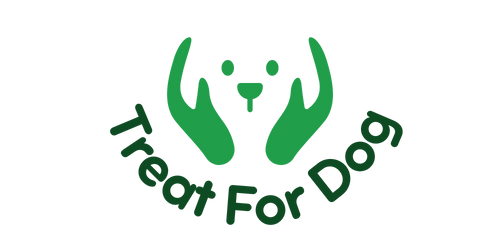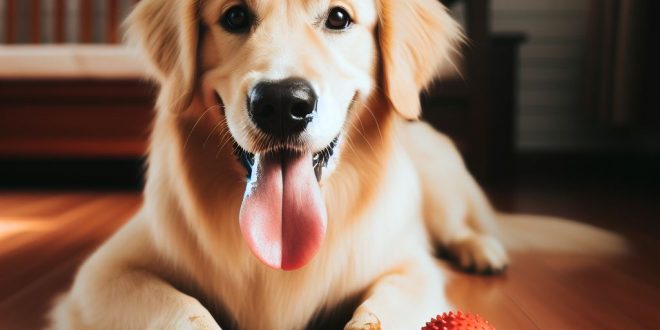Why Does My Dog Lick the Floor? – Excessive floor licking in dogs can be a baffling behavior to witness. It can leave pet owners wondering if there is a deeper cause behind this action. While it may seem innocuous, there could be underlying reasons why your furry companion is indulging in this behavior. In this article, we will explore the common reasons why dogs lick the floor, including behavioral issues, health concerns, and dietary deficiencies. By understanding these factors, you will be better equipped to address this behavior and ensure your pet’s overall well-being. So, let’s dive in and discover the reasons behind why dogs lick the floor.
Keywords: why does my dog lick the floor, excessive floor licking in dogs, reasons for dogs licking the floor
Table of Contents
Why Does My Dog Lick the Floor?
Dogs licking the floor may be demonstrating behavioral issues that need attention. These range from anxiety, boredom, stress, to compulsive behavior. Understanding the cause of the behavior is the key to finding a solution.
If your dog is licking the floor due to anxiety, try to identify the triggers, such as loud noises or separation anxiety, and provide a calm environment. Consult with your vet about adding supplements or medications, or contact a professional animal behavioral specialist to help you develop a training plan.
Boredom can also trigger floor licking for dogs. Making sure your dog gets enough exercise and mental stimulation, such as playing with toys or interacting with other dogs, can create a more fulfilling environment for your pup. Giving your dog a designated space in your home can also help to reduce boredom and promote healthy behavior.
Behavioral Causes of Floor Licking in Dogs
Compulsive behavior often stems from anxiety, stress, or boredom. Replacing the habit with a more constructive behavior can help to break the cycle. Redirect your dog’s attention to interactive toys, games, and physical activity. Provide positive reinforcement and praise when your dog behaves in a constructive manner instead of licking the floor.
If your dog’s floor licking behavior is causing concern, contact your vet to rule out underlying health issues. They can also help to guide you in developing specific strategies that address the behavioral causes of floor licking in dogs and help you create a more pleasant and comfortable environment for your dog.
Health Issues and Floor Licking in Dogs
It’s not uncommon for dogs to lick the floor, but it could also be a sign of underlying health issues. Some medical conditions can cause excessive floor licking in dogs, including gastrointestinal disorders, dental problems, and allergies.
| Condition | Symptoms |
|---|---|
| Gastrointestinal disorders (e.g., gastritis, pancreatitis) | Vomiting, diarrhea, decreased appetite |
| Dental problems (e.g., dental abscess, gum disease) | Changes in eating habits, bad breath |
| Allergies (e.g., food allergies, environmental allergies) | Itchy skin, gastrointestinal upset, respiratory distress |
If your dog is constantly licking the floor, it’s essential to speak with your veterinarian. They can perform a thorough examination to identify any underlying health issues causing this behavior. Once the underlying condition is treated, your dog’s behavior should return to normal.
Dietary Deficiencies and Floor Licking in Dogs
If your furry friend has been frequently licking the floor, it may be due to underlying dietary deficiencies. A balanced diet plays a crucial role in maintaining your dog’s overall health and behavior. Without proper nutrition, your dog’s body may crave additional nutrients, leading to quirky behaviors such as floor licking.
Essential nutrients like vitamins, minerals, and fatty acids are necessary for a dog to function optimally. If your dog’s diet is lacking in these nutrients, it can result in a nutrient deficiency.
A nutrient deficiency can not only lead to floor licking but other behavioral problems, such as lethargy, aggression, and skin issues. Therefore, make sure to provide your furry friend with a healthy and well-balanced diet that suits their specific nutritional requirements.
Addressing Nutritional Deficiencies
If you suspect your dog has a nutrient deficiency, consult your veterinarian before making any dietary changes. Together, you can develop a nutrition plan to address any deficiencies or imbalances. Based on your dog’s breed, age, and other individual factors, the vet will recommend suitable foods or supplements to address the problem.
| Nutrient | Possible Symptoms of Deficiency | Sources of Nutrients |
|---|---|---|
| Omega-3 Fatty Acids | Dull coat, itchy skin, joint problems | Salmon, flaxseed, chia seeds, fish oil supplements |
| Vitamin C | Immune system weakness, muscle degeneration, joint pain | Broccoli, Brussels sprouts, parsley, oranges, blueberries |
| Calcium | Weak bones, muscle tremors, seizures | Raw bones, dairy, kale, spinach, sardines |
| Vitamin D | Bad teeth, weak bones, muscle weakness | Exposure to the sun, fatty fish, egg yolks, cheese |
Remember that even when you have addressed nutritional deficiencies, it may take some time for your furry friend’s body to adjust. Be patient, consistent, and keep monitoring them for any signs of improvement or relapse.
Floor Licking and Anxiety in Dogs
Does your dog seem to be unexplainably licking the floor with increasing frequency? Anxiety could be the root cause of this behavior. Anxiety is a common issue for dogs and can be caused by various factors such as separation anxiety, fear, and lack of socialization.
The first step in managing anxiety-related floor licking in your dog is to identify the underlying cause of their anxiety. Once you have identified the trigger, you can address it through techniques such as desensitization, counterconditioning, and positive reinforcement training. Providing your dog with physical and mental stimulation and creating a safe and calming environment can help alleviate their anxiety and reduce floor licking.
If you are struggling to manage your dog’s anxiety, it is helpful to seek guidance from a professional dog behaviorist or veterinarian. They can provide you with personalized recommendations and additional resources to address your dog’s anxiety and floor licking behavior.
Conclusion of Why Does My Dog Lick the Floor?
Understanding why your dog licks the floor is crucial to addressing this behavior and keeping your furry friend healthy. Whether it’s due to behavioral issues, health concerns, dietary deficiencies, or anxiety, there are various strategies and techniques you can implement to stop your dog from licking the floor excessively.
Remember, identifying the underlying cause is the key to effective treatment. If you suspect that your dog’s floor licking is due to a medical condition or anxiety, it’s essential to consult your veterinarian.
By taking the necessary steps to address this behavior, you can provide your furry companion with a better quality of life and a happier home. So why wait? Start implementing these tips today and watch your dog’s floor licking behavior improve!
 Treat For Dog – Brain Training for Dogs, Dog Training & Obedience Discover Treat For Dog and get your pup on the path to smarter, happier, and healthier living with brain training for dogs.
Treat For Dog – Brain Training for Dogs, Dog Training & Obedience Discover Treat For Dog and get your pup on the path to smarter, happier, and healthier living with brain training for dogs.




